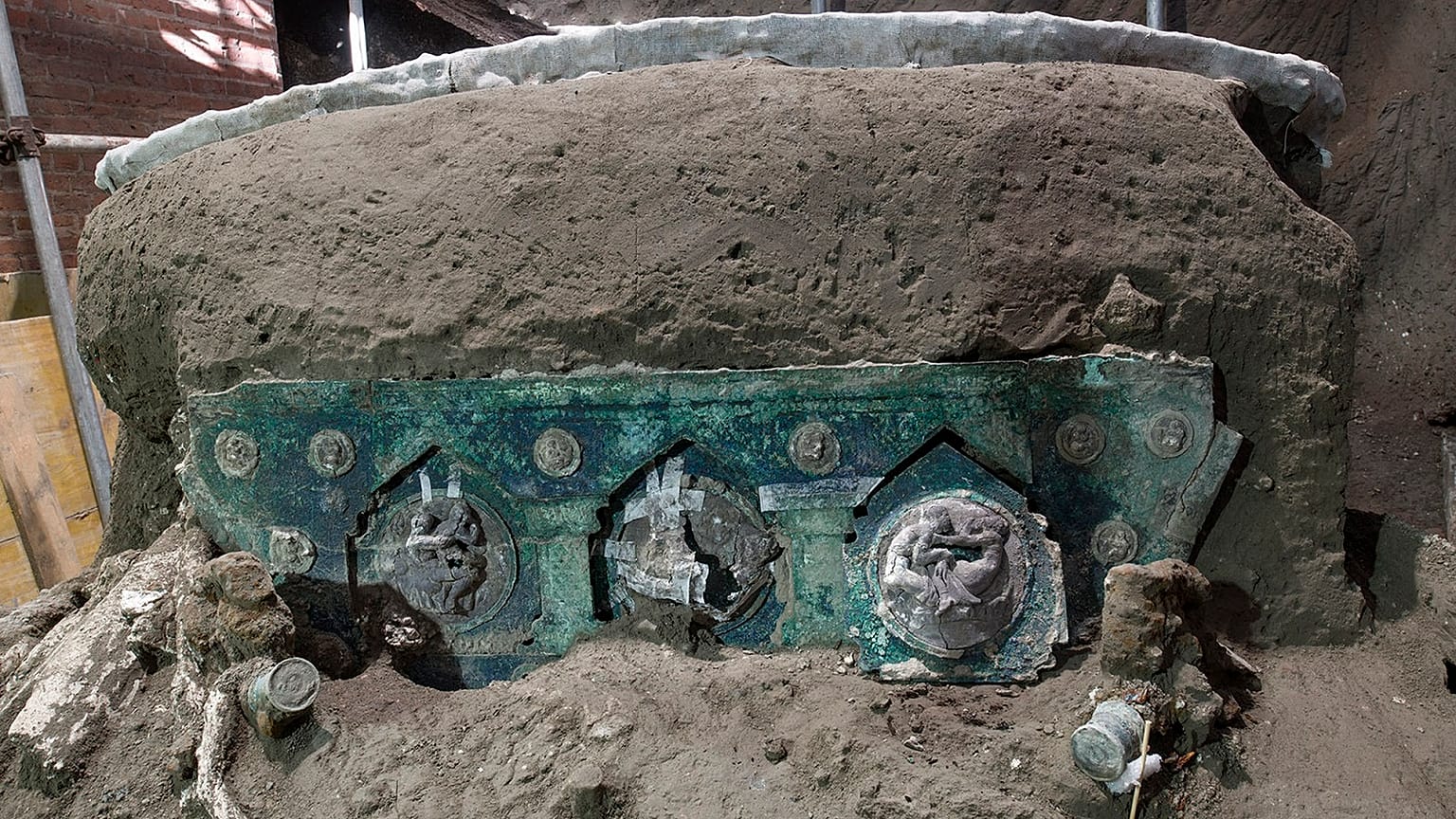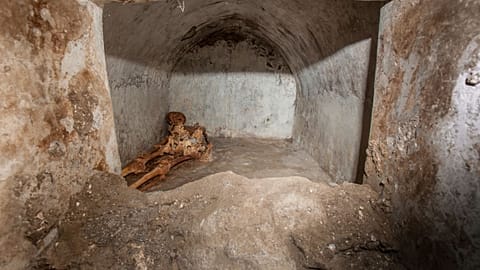Archaeologists believe the cart was used for festivities and parades, and perhaps to carry brides to their new homes.
Officials at the Pompeii archaeological site in Italy have announced the discovery of an intact ceremonial chariot. It is one of several important discoveries made in the same area outside the park near Naples.
Archaeologists believe the cart was used for festivities and parades, and perhaps to carry brides to their new homes.
While chariots for daily life or the transport of agricultural products have been previously found at Pompeii, officials said the new find is the first ceremonial chariot unearthed in its entirety.
The chariot, with its iron elements, bronze decorations and mineralised wooden remains, was found in the ruins of a settlement beyond the walls of the ancient city, parked in the portico of a stable where the remains of three horses were previously discovered.
The Archaeological Park of Pompeii called the chariot "an exceptional discovery" and said "it represents a unique find - which has no parallel in Italy thus far - in an excellent state of preservation".
The eruption of Mount Vesuvius in 79 AD destroyed Pompeii. The chariot was spared when the walls and roof of the structure it was in collapsed, and also survived looting by modern-day antiquities thieves, who had dug tunnels through to the site, grazing but not damaging the four-wheeled cart, according to park officials.
The chariot was found on the grounds of Civita Giuliana, one of the most significant ancient villas in the area around Vesuvius on the northern outskirts of the ancient Roman city which had a panoramic view of the Mediterranean Sea.
Last year, archaeologists found the skeletal remains of what are believed to have been a wealthy man and his male slave attempting to escape death.


















